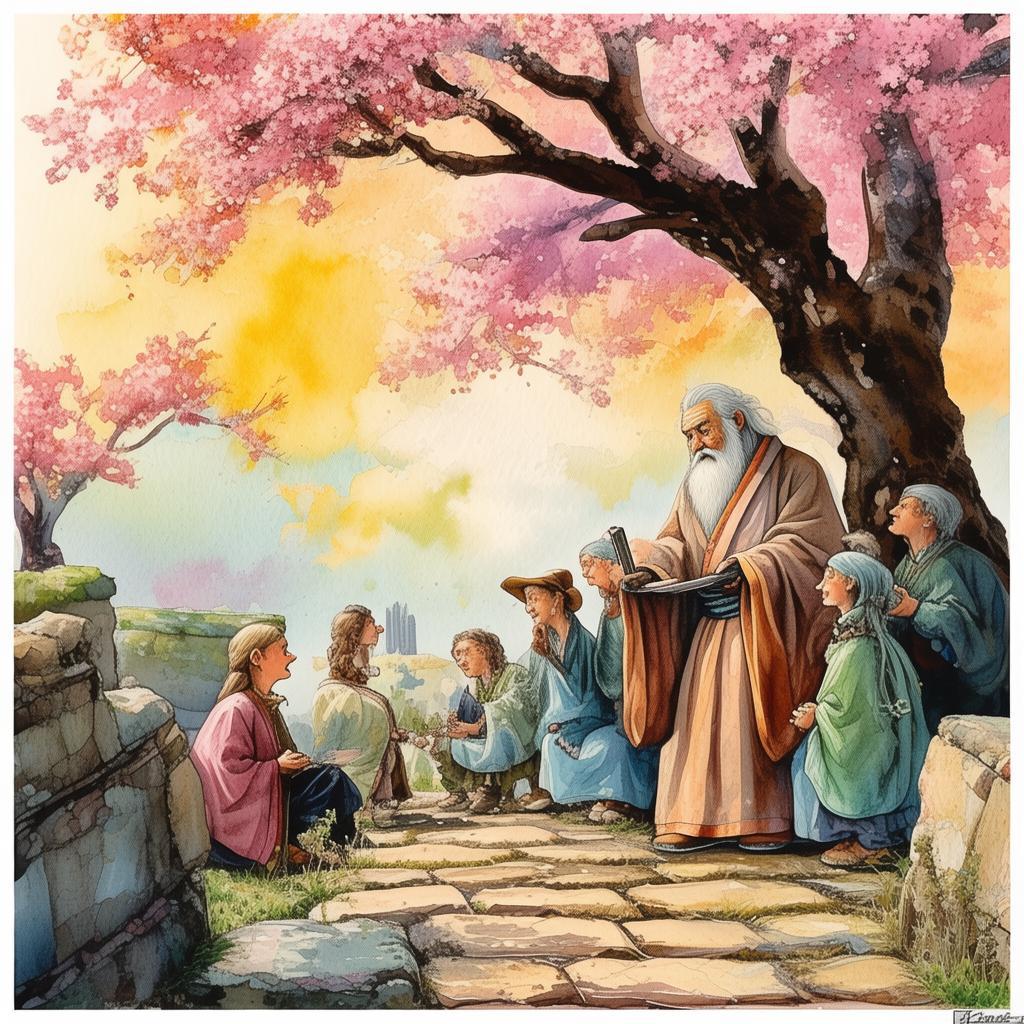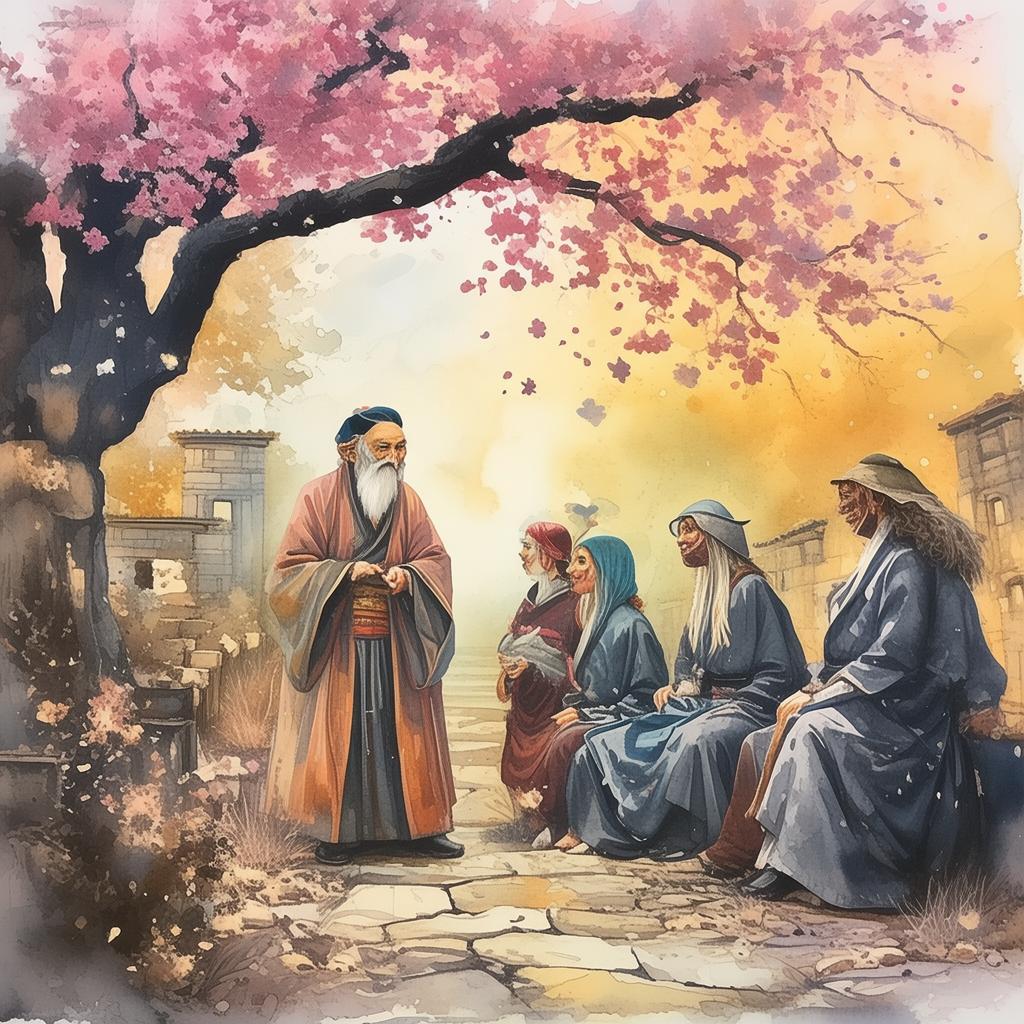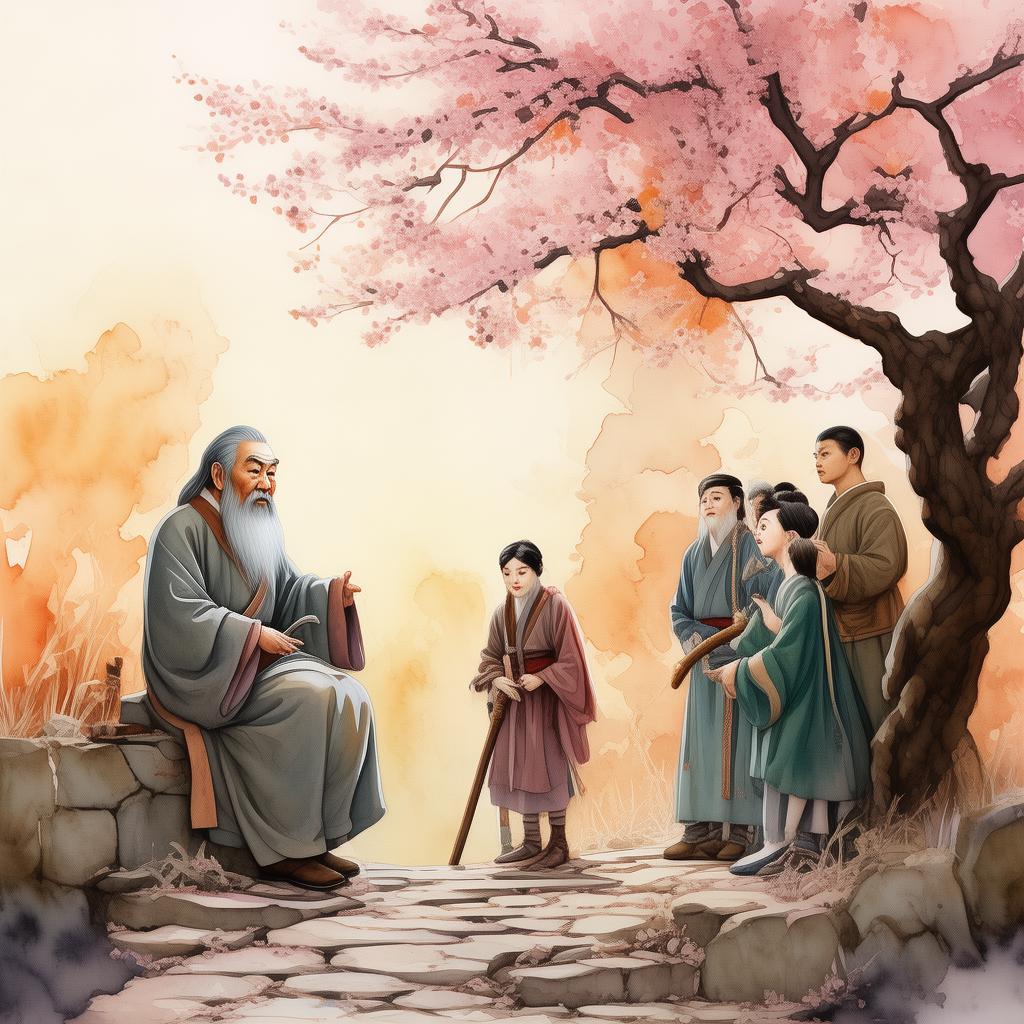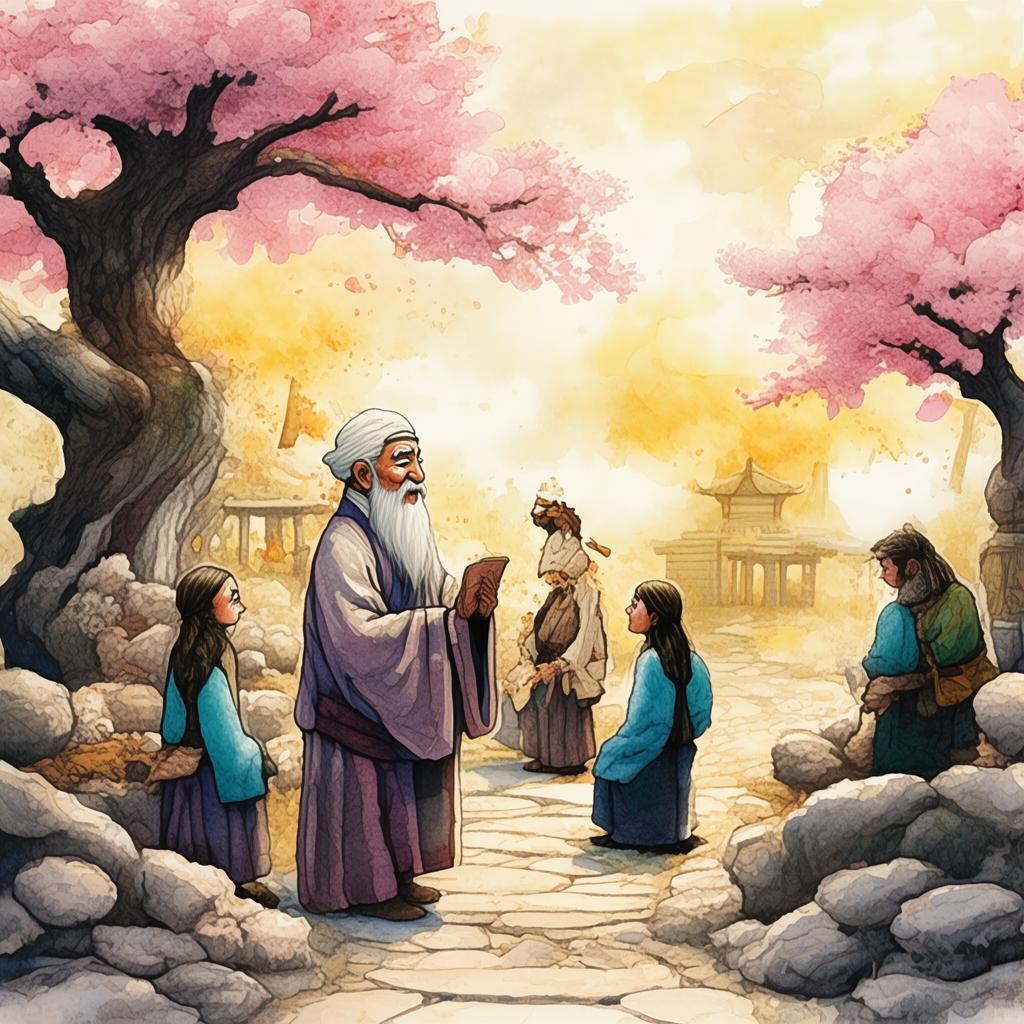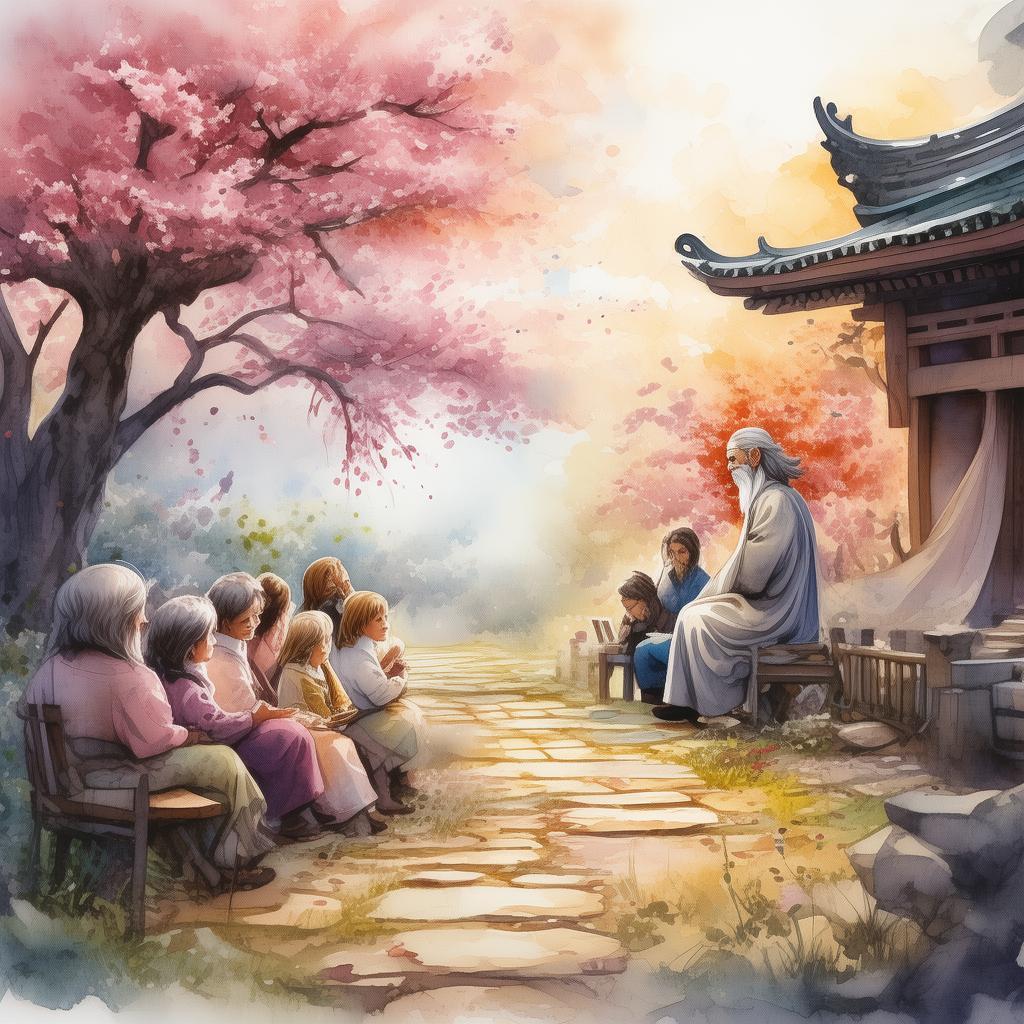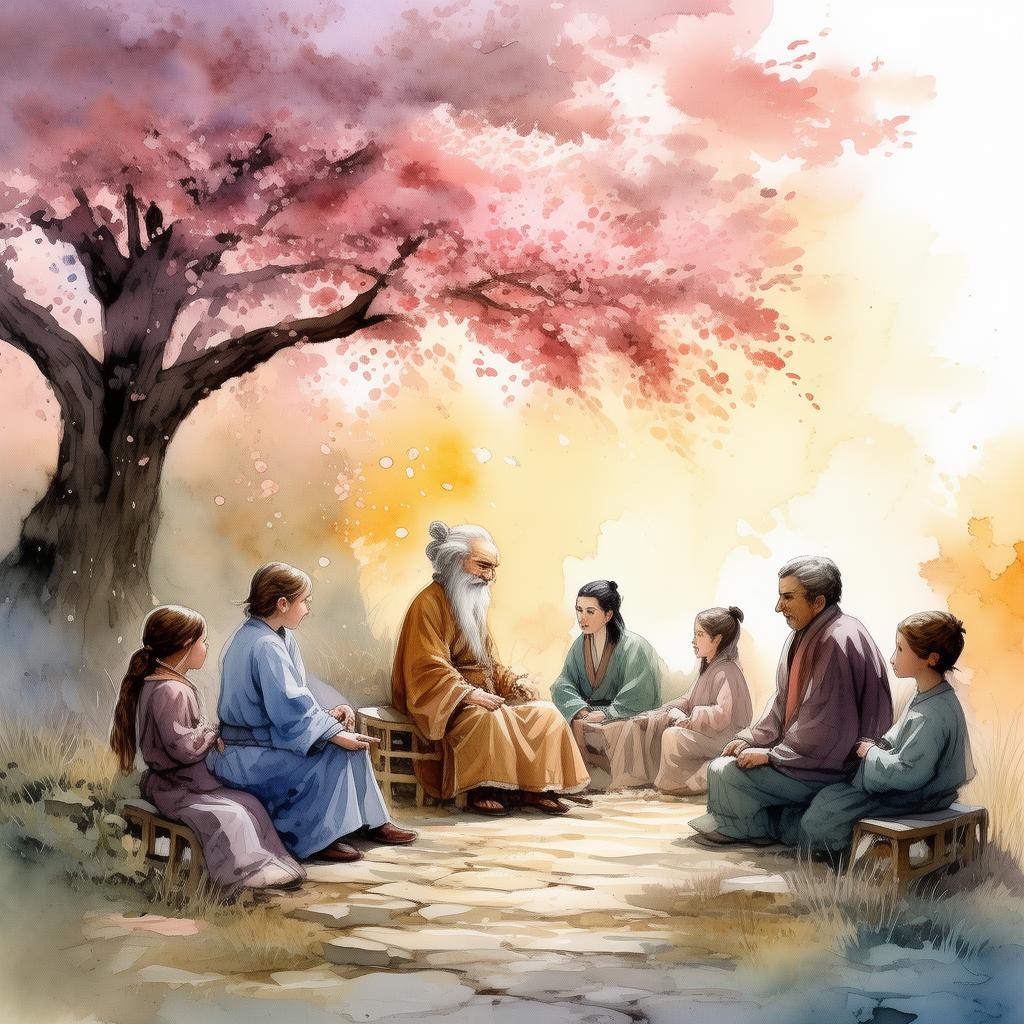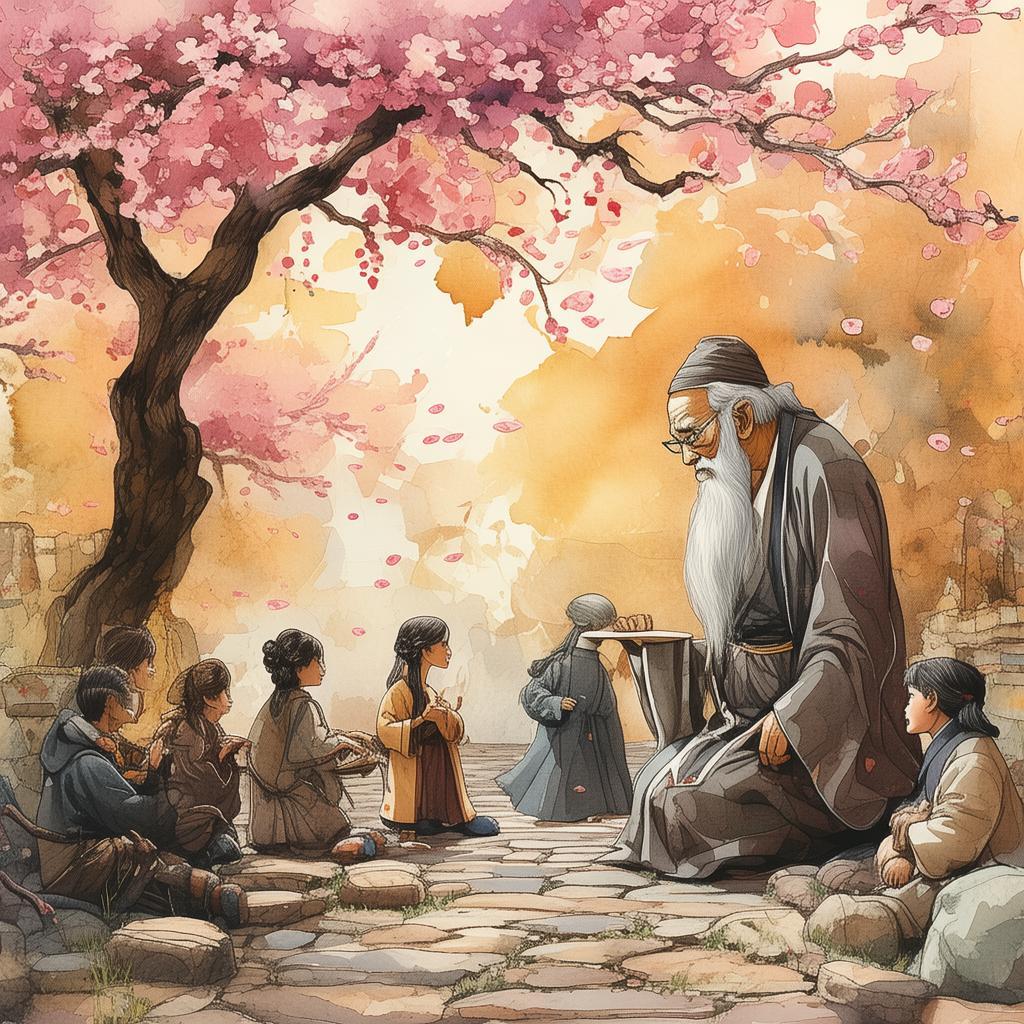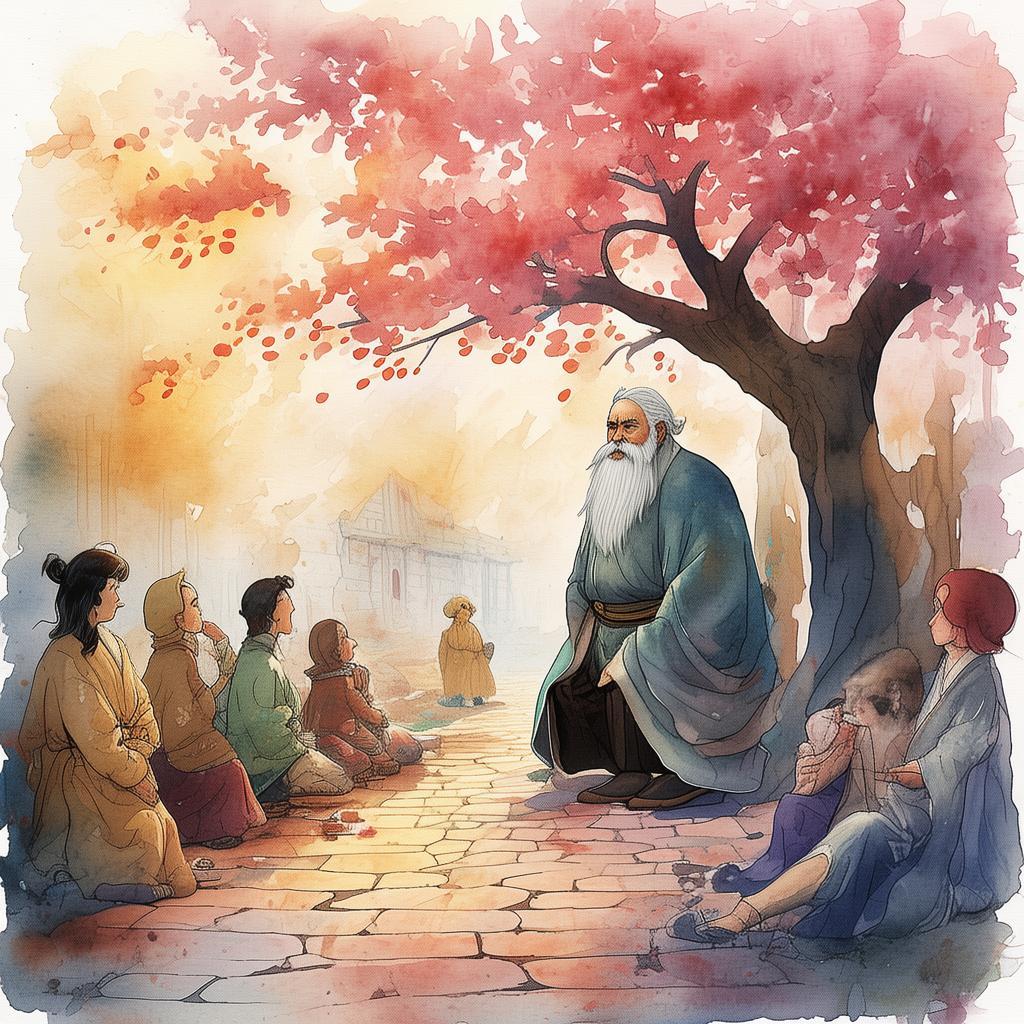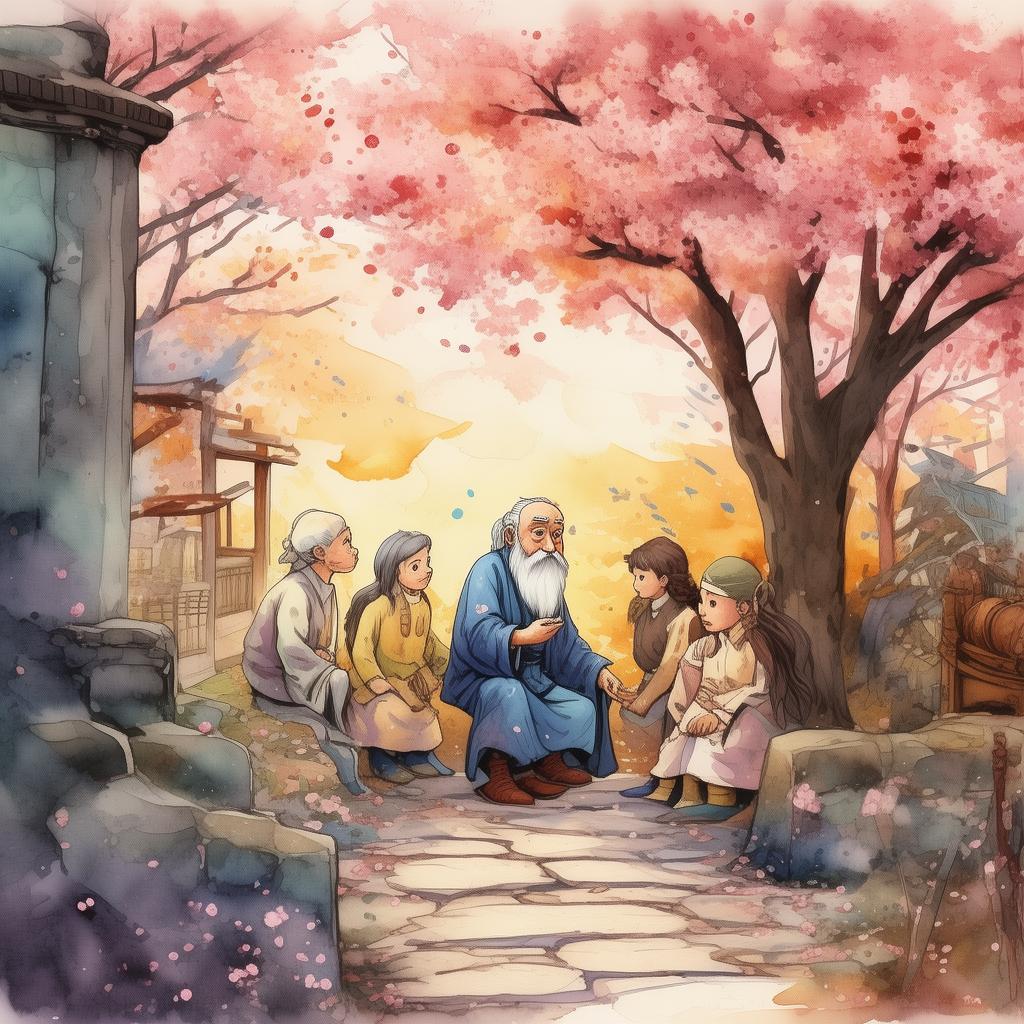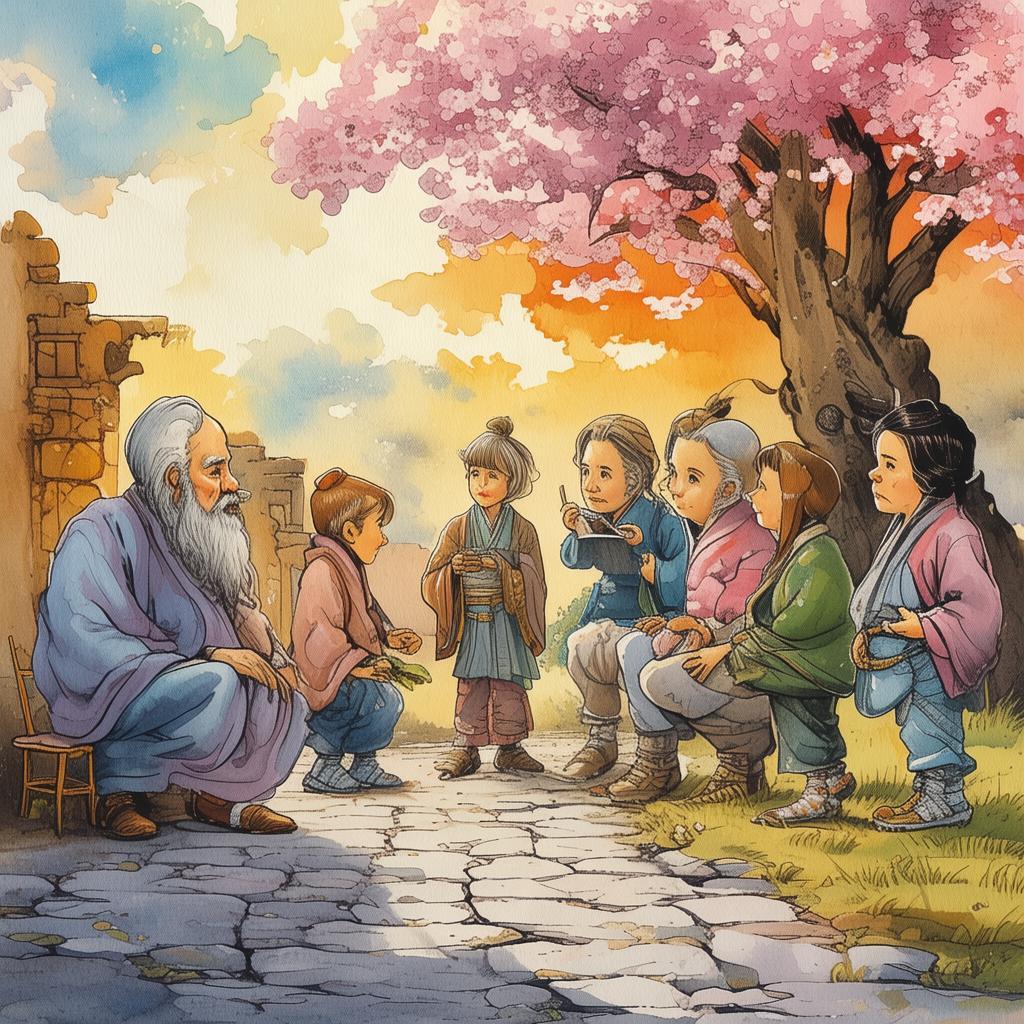Whispers of the Maestro: A Symphony of Betrayal
In the heart of the grand concert hall, where the echoes of the past mingled with the promise of the future, there stood a maestro whose name was synonymous with the art of music. His name was Liang, and his melodies were the stuff of legend. Liang was not just a conductor; he was a maestro who could weave emotions into his compositions, making the audience feel as if they were part of the very fabric of the music itself.
One evening, as the moon cast its silver glow upon the city, Liang found himself alone in his study, the only sound the gentle ticking of the grandfather clock. He was deep in thought, his fingers tracing the keys of his piano, creating a haunting melody that seemed to speak of loss and longing. It was then that a knock at the door shattered the silence.
"Enter," Liang commanded, his voice steady despite the unease that had taken root in his chest.
The door creaked open, and in stepped a young man, his eyes filled with a mixture of fear and desperation. "Master Liang, I beg you, please hear me out. I have been sent by the council to offer you a proposition that could change your life."
Liang's brow furrowed as he stood up, his chair scraping against the floor. "Speak, young man. What is it that you wish to propose?"
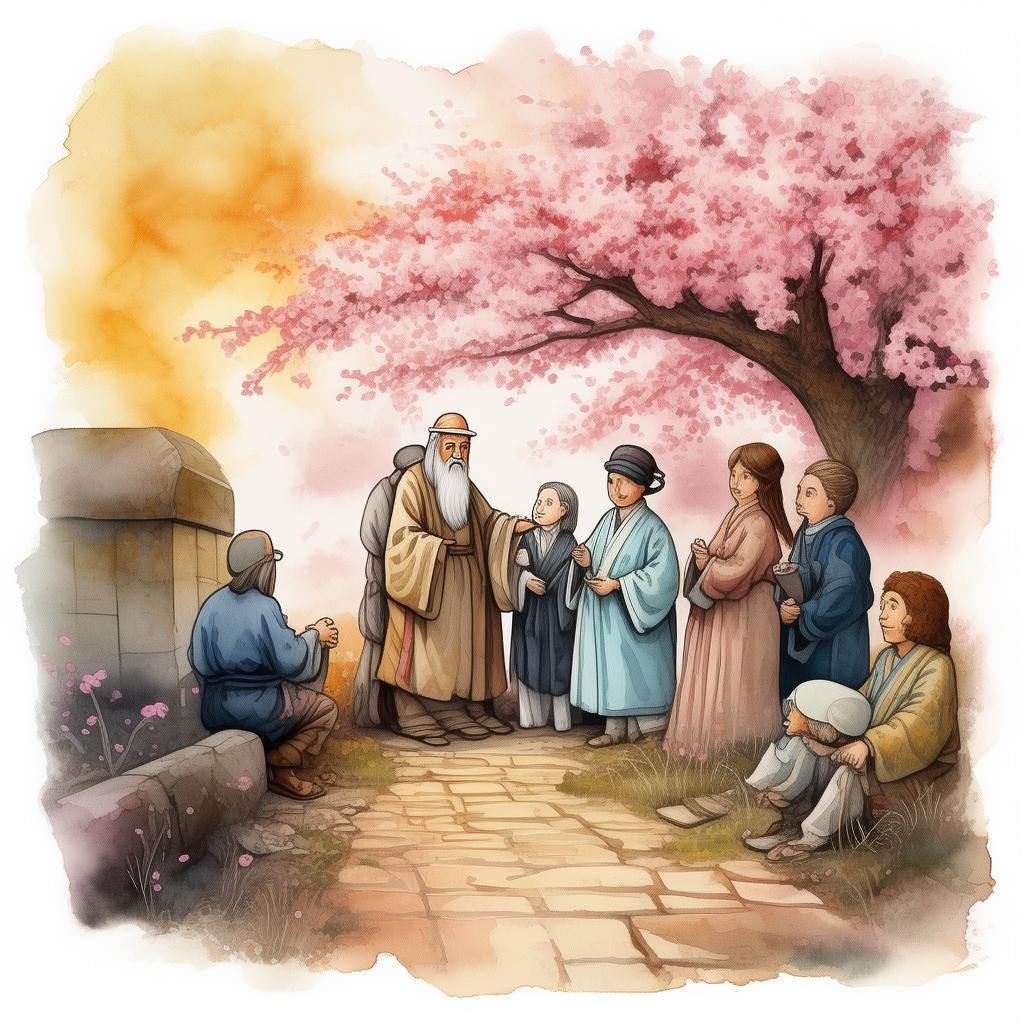
The young man, named Feng, cleared his throat. "The council has heard of your unparalleled skill in conducting. They wish to offer you a position of great power, one that would place you above all others in the musical world. In return, you would be required to compose a symphony that would be used as a tool of control over the people."
Liang's heart raced. The offer was enticing, but the thought of using his art to control others was abhorrent to him. "And what happens if I refuse?"
Feng's eyes darted around the room, as if searching for a way to escape the inevitable. "If you refuse, Master Liang, there will be consequences. Your melodies, once cherished by all, will be replaced by those that serve the council's purpose."
The weight of Feng's words settled upon Liang like a heavy shroud. He knew that he stood at a crossroads, one that would define not only his musical legacy but also his very soul.
Days turned into weeks, and Liang found himself torn between his love for music and the fear of the consequences that awaited him if he refused the council's offer. He began to work on a symphony, but the melodies that once flowed freely from his fingers now felt like chains binding him to a fate he loathed.
One night, as he sat at his piano, a sudden realization struck him. The symphony he was writing was not just a piece of music; it was a reflection of his inner turmoil. He saw the council's offer as a form of betrayal, a betrayal of his art and his principles.
With a newfound resolve, Liang abandoned the symphony he had been working on. He decided to compose a new piece, one that would speak to the heart of the people, a melody that would resonate with their hopes and dreams. He knew that it would be a risky move, but he was determined to stand up against the council's manipulative power.
As the opening night of the concert approached, the city buzzed with anticipation. The council had taken notice of Liang's actions and had begun to spread rumors about his betrayal. Yet, despite the pressure, Liang remained steadfast in his decision.
The night of the concert arrived, and the hall was filled to capacity. Liang took the stage, his presence commanding the room. The first notes of his new symphony filled the air, and the audience was immediately captivated. The music was unlike anything they had ever heard before, a symphony of hope and freedom that seemed to speak directly to the soul.
As the final note echoed through the hall, the audience erupted into a standing ovation. Liang bowed deeply, his heart swelling with pride and relief. He had done it; he had stood up against the council and won the hearts of the people.
In the days that followed, the council's hold on the city began to weaken. The people, inspired by Liang's courage and his music, rose up against their oppressive rulers. The maestro's melody had become a call to arms, a symphony of liberation.
Liang's name was etched into the annals of history as the man who had used his art to free his people. The council's attempt to control through music had failed, and Liang's legacy lived on in the hearts of all who had heard his music.
In the end, Liang realized that true power lay not in the ability to control others, but in the power of music itself. It was a power that could unite, inspire, and bring hope to even the darkest of times. And so, the maestro's melody became a timeless symphony, a testament to the enduring power of art and the indomitable spirit of humanity.
✨ Original Statement ✨
All articles published on this website (including but not limited to text, images, videos, and other content) are original or authorized for reposting and are protected by relevant laws. Without the explicit written permission of this website, no individual or organization may copy, modify, repost, or use the content for commercial purposes.
If you need to quote or cooperate, please contact this site for authorization. We reserve the right to pursue legal responsibility for any unauthorized use.
Hereby declared.
